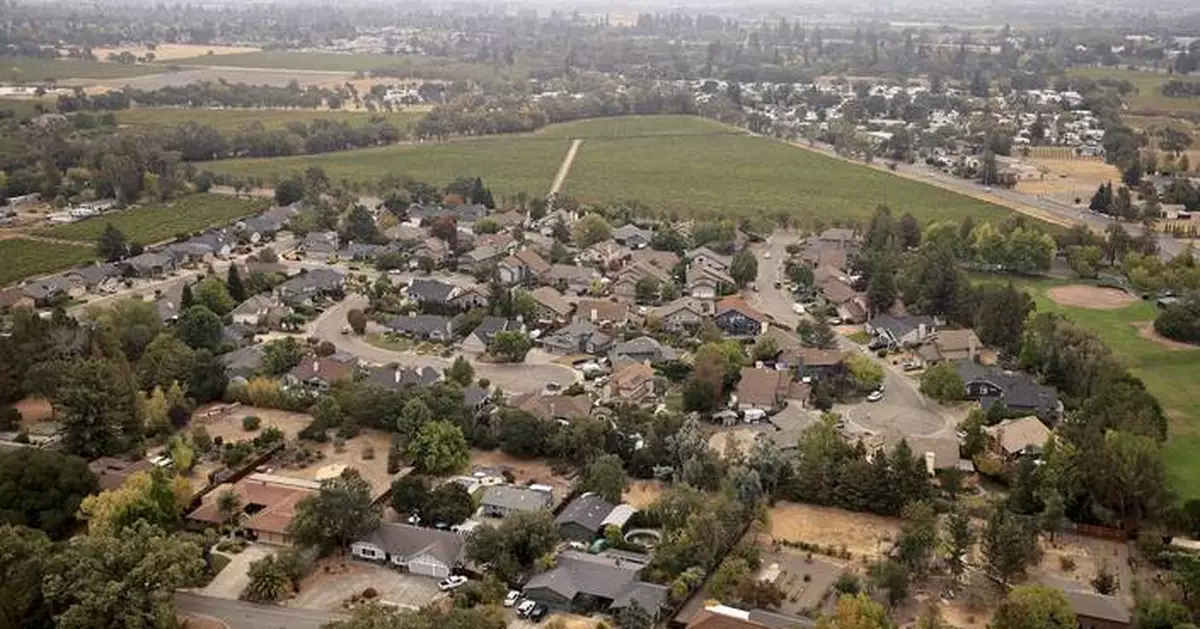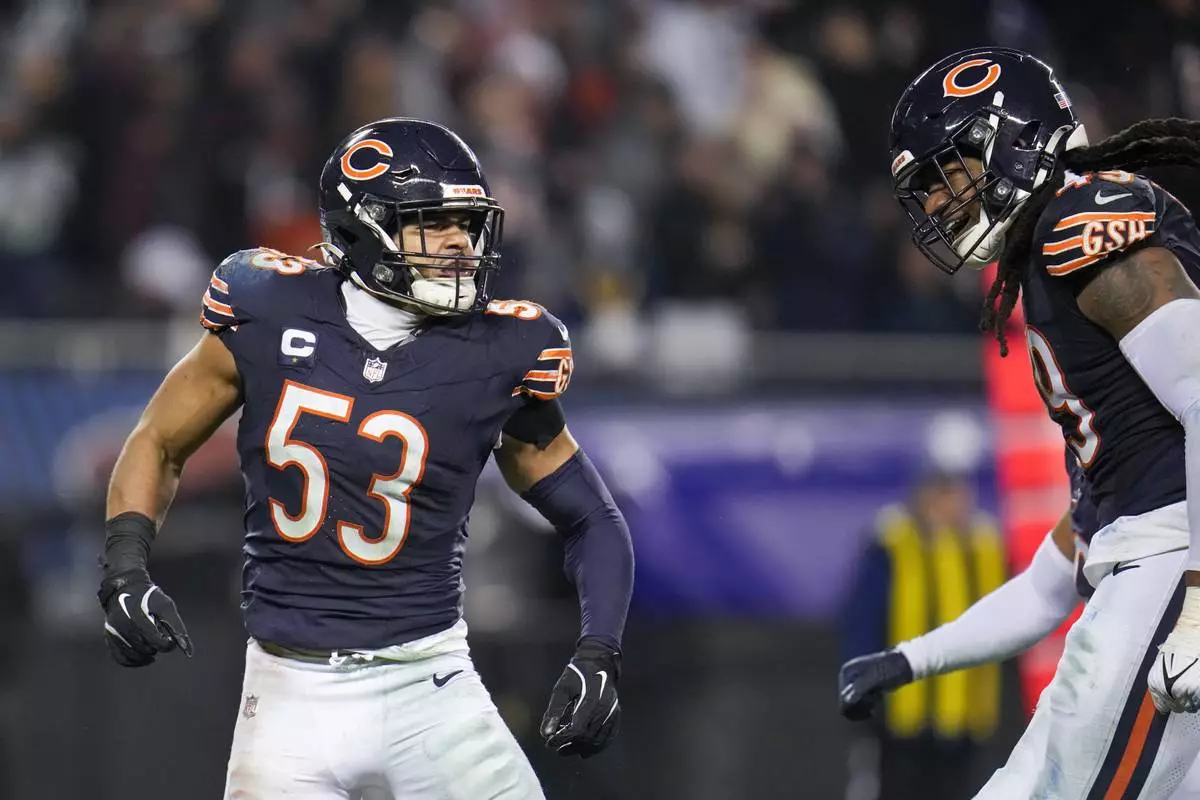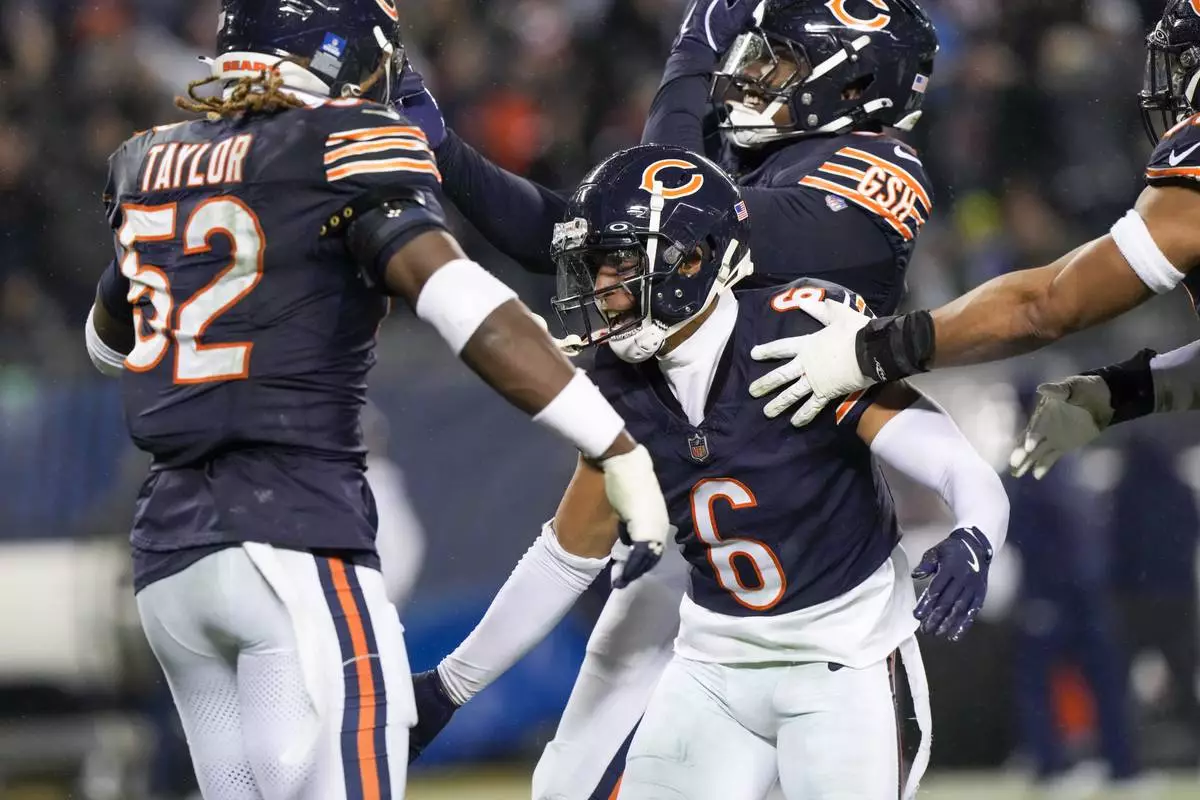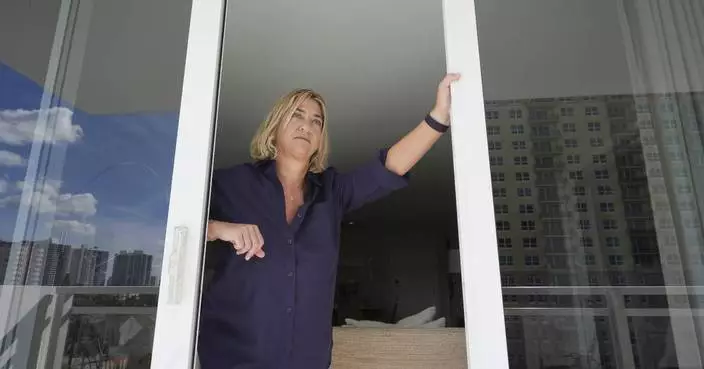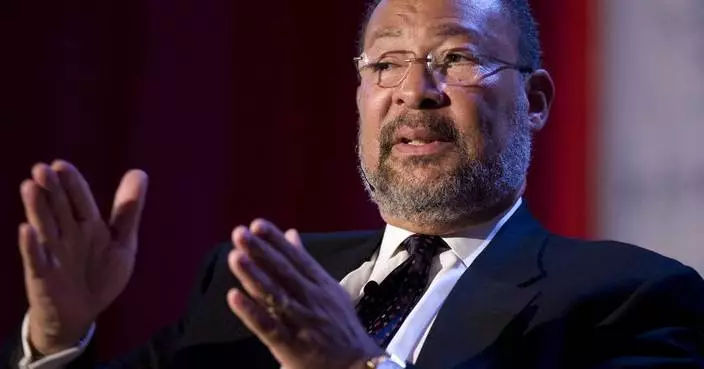SAN FRANCISCO (AP) — For decades a small, landless tribe in Northern California has been on a mission to get land, open a casino and tap into the gaming market enjoyed by so many other tribes that earn millions of dollars annually.
The Koi Nation's chances of owning a Las Vegas-style casino seemed impossible until a federal court ruling in 2019 cleared the way for the tiny tribe to find a financial partner to buy land and place it into a trust to make it eligible for a casino.
Now the tribe of 96 members has teamed up with the Chickasaw Nation of Oklahoma, which owns the biggest casino in the world, and is waiting for U.S. Department of Interior Secretary Deb Haaland to decide whether the 68-acre (27-hectare) parcel the tribe bought for $12.3 million in Sonoma County in 2021 is put into trust.
Placing the land into trust would allow the Koi to move closer to building a $600 million casino and resort on prime real estate in the heart of Northern California’s wine country.
The decision comes as the U.S. government tries to atone for its history of dispossessing Indigenous people of their land, in part through a federal legal process that goes beyond reinstating ancestral lands and allows a tribe to put land under trust if it can prove “a significant historical connection to the land.”
The Koi Nation, a Southeastern Pomo tribe whose ancestors lived in Northern California for thousands of years, faces mounting opposition from other tribes and even California Gov. Gavin Newsom over its plans for the Shiloh Resort and Casino, which would include a 2,500-slot machine casino and 400-room hotel with spa and pool.
If approved, the casino would be built near Windsor, about 65 miles (105 kilometers) north of San Francisco, near two other Native American casinos a few miles away: Graton Resort and Casino in Rohnert Park and River Rock Casino in Geyserville.
The money generated would allow tribal members a better life in one of the country's most expensive regions, including educational opportunities for young tribe members, said Dino Beltran, Vice Chairman of the Koi Nation’s Tribal Council.
“It has taken us years to be on the same playing field as every other tribe in the United States and now the same tribes that have established themselves are against us. It’s a very sad thing,” Beltran said.
Among the most vocal critics of the Koi Nation’s project is Greg Sarris, chairman of Graton Rancheria, a federation of Coast Miwok and Southern Pomo people with more than 1,500 members. The tribe's casino is the biggest in the Bay Area and is undergoing a $1 billion expansion.
Sarris, who last year was appointed by Newsom to the University of California Board of Regents, said the Koi Nation are Southeastern Pomo people whose ancestral home is in Lake County, about 50 miles (80 kilometers) northeast of the project site.
The tribe, Sarris said, is not linguistically, culturally or historically connected to Sonoma County and he accused the tribe of cherry-picking land that already draws tourists.
“They are claiming that part of their deep historical connection is they had a family member in the early 20th century who lived in Sonoma County,” Sarris scoffed.
The Indian Gaming Regulatory Act, enacted by Congress in 1988, sets rules for how and where Native American tribes can operate casinos, and generally limits them to ancestral lands that have been returned to the tribe.
But the law also makes a “restored lands” exception for federally recognized tribes that do not have a reservation — or rancheria, as they are called in California — to build a casino outside their ancestral land if the tribe can show historical and modern connections to the area where the gambling facility will be located. The land also has to be near where a significant number of tribal members reside.
“Generally speaking, tribes cannot game on any land that is taken into trust after 1988 but there are important exceptions to that general prohibition that are meant to be fair to tribes that did not have land in 1988,” said Kathryn Rand, an expert on tribal gaming law at the University of Nevada, Las Vegas’s International Center for Gaming Regulation.
Before white colonizers arrived in California, Koi Nation’s ancestors lived on an island in Lake County and traded with other tribes in Northern California, according to the tribe’s website.
In 1916, the U.S. government approved land in Lake County for Koi Nation's rancheria about 28 miles (45 kilometers) north of the proposed casino site. The land was eventually declared uninhabitable by the Bureau of Indian Affairs because of its rocky terrain and many Koi families moved south to neighboring Sonoma County, mainly to Sebastopol and Santa Rosa, where the tribe is now headquartered.
Four decades later, the federal government took that land and sold it for an airport, leaving the tribe landless. After a lengthy court battle, a federal judge in 2019 ruled the Koi Nation had the right to pursue buying land for a casino.
Michael Anderson, a Koi Nation attorney, said a historic trail used by the tribe from the Clear Lake basin to Bodega Bay, on Sonoma County’s Pacific Coast, runs through a portion of the property, which supports the legal requirement of having a "significant historical connection to the land.”
Anderson said their legal case is strong. But, “the politics is a whole different thing,” he added.
Sarris, whose casino gives millions to small, non-gaming tribes and has become a major donor to California politicians, said the Koi Nation has previously tried to get land under trust to open a casino in Solano and Alameda Counties — both in the San Francisco Bay Area — and accused the tribe of “reservation shopping.”
Anderson said the term was offensive and Sarris is simply trying to protect his lucrative casino from competition.
“This is about market protection, that’s the heart of it,” Anderson said.
Newsom and local politicians also oppose the project along with the Dry Creek Band of Pomo Indians, which operates River Rock Casino.
Newsom’s office sent a letter last month to Department of the Interior Assistant Secretary of Indian Affairs Bryan Newland urging him not to move forward with the Shiloh casino project and another proposed casino in the Bay Area, saying the governor is concerned the department is not considering other sites for the casinos and approving them would “stretch the limits of the ‘restored lands’ exception."
The department is weighing three other land trust applications under the “restored lands” exception, including one by the Scotts Valley Tribe that wants to build a casino in Solano County. In Oregon, the Coquille Indian Tribe wants to open a casino in Medford, about 170 miles (273 kilometers) south of its tribal headquarters and closer to the California border.
Casino-owning tribes are pushing back on both. The Guidiville Rancheria tribe in Northern California has applied but has not yet identified land for their project, according to the Bureau of Indian Affairs.
Haaland will consider several factors in making her decision, including opposition to the casinos, said Steve Light, an expert on tribal gaming policy at the UNLV International Center for Gaming Regulation.
But the secretary also will take into account whether the casino will help with "tribal self-determination, tribal self-governance, and tribal economic development, job creation and resources for the tribe,” he said.
Of the 574 federally recognized tribes, 110 are in California. According to the American Gaming Association, there are 87 tribal casinos in the state, making California the largest tribal gaming market in the country.
“With 40 million people in California, this is presumably still an untapped market, but one that is increasingly competitive,” Light said.
__
This story has been updated to correct the name of the law that regulates tribal casinos. It is the Indian Gaming Regulatory Act.
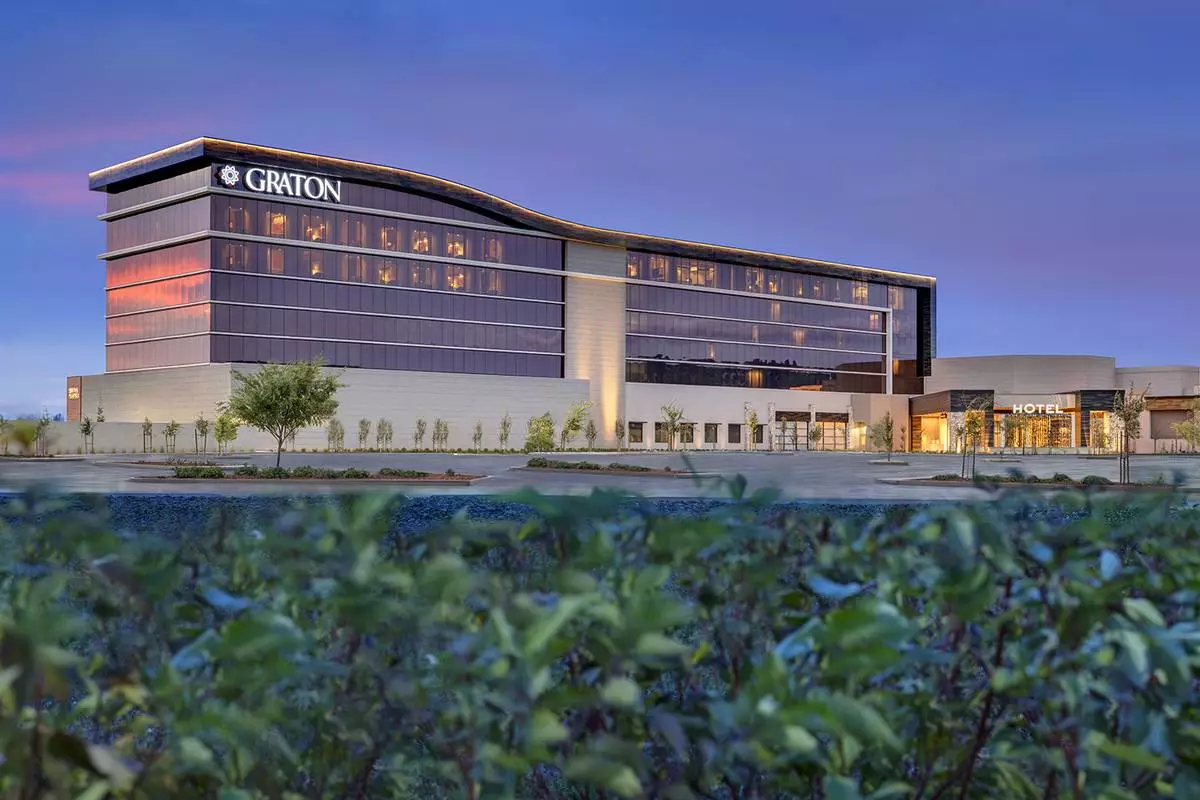
This undated photo provided by the Federated Indians of Graton Rancheria shows an exterior view of The Graton Resort and Casino in Rohnert Park, Calif. (Federated Indians of Graton Rancheria via AP)
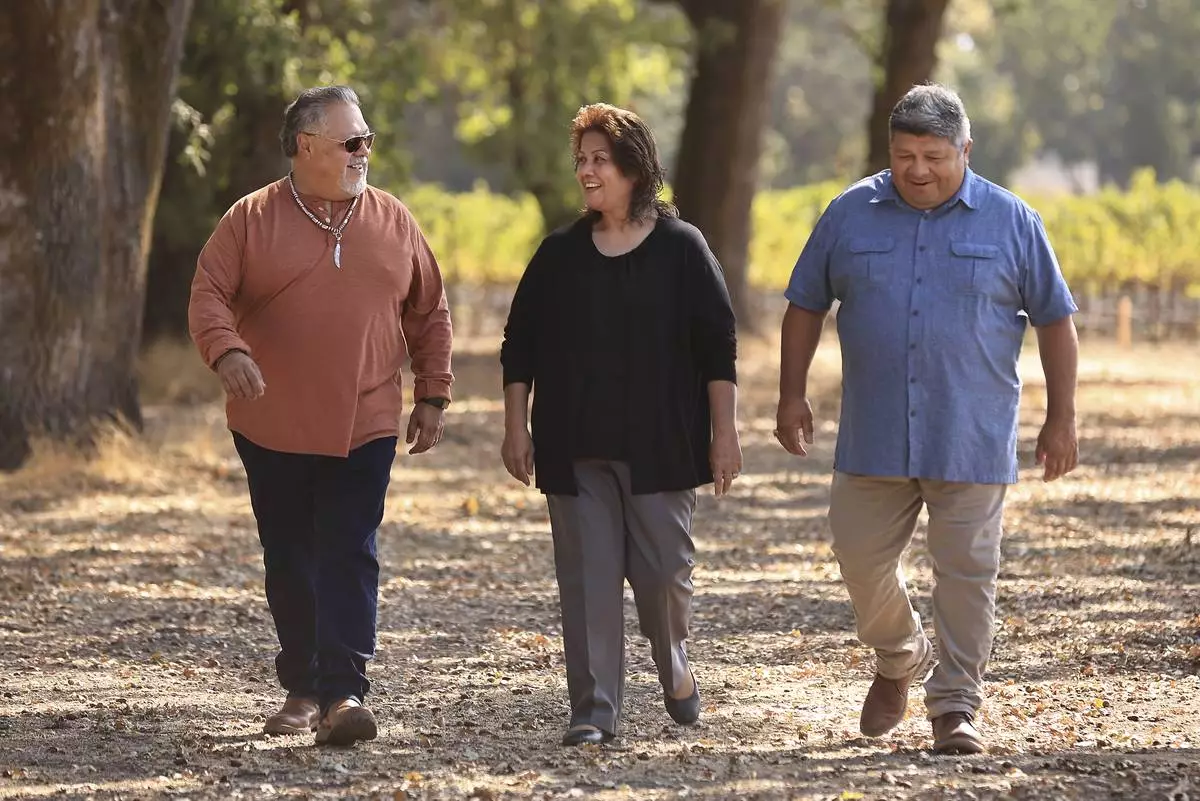
From left, Dino Beltran, Judy Fast Horse and Darin Beltran, of Sonoma County's Native American Koi Nation, tour a portion of land designated for casino project, Sept. 17, 2021, near Windsor, Calif. (Kent Porter/The Press Democrat via AP)
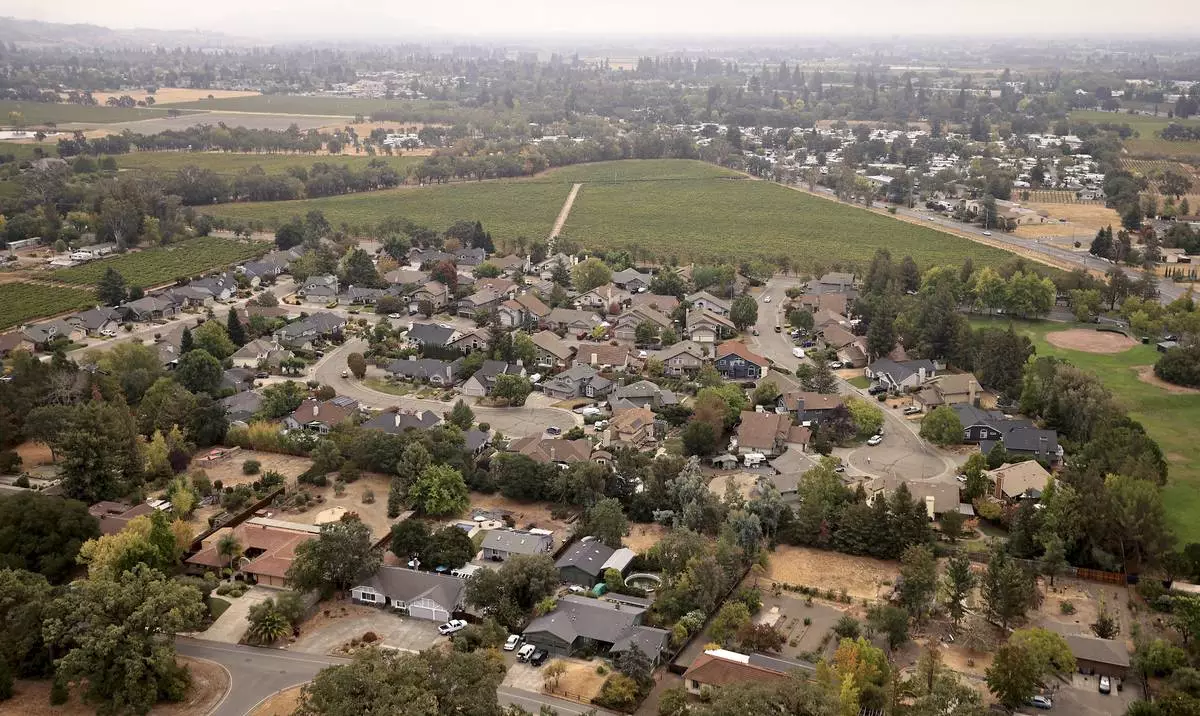
This aerial photo shows a subdivision at the site of a proposed resort and casino development, Sept. 17, 2021, near Windsor, Calif. (Kent Porter/The Press Democrat via AP)


